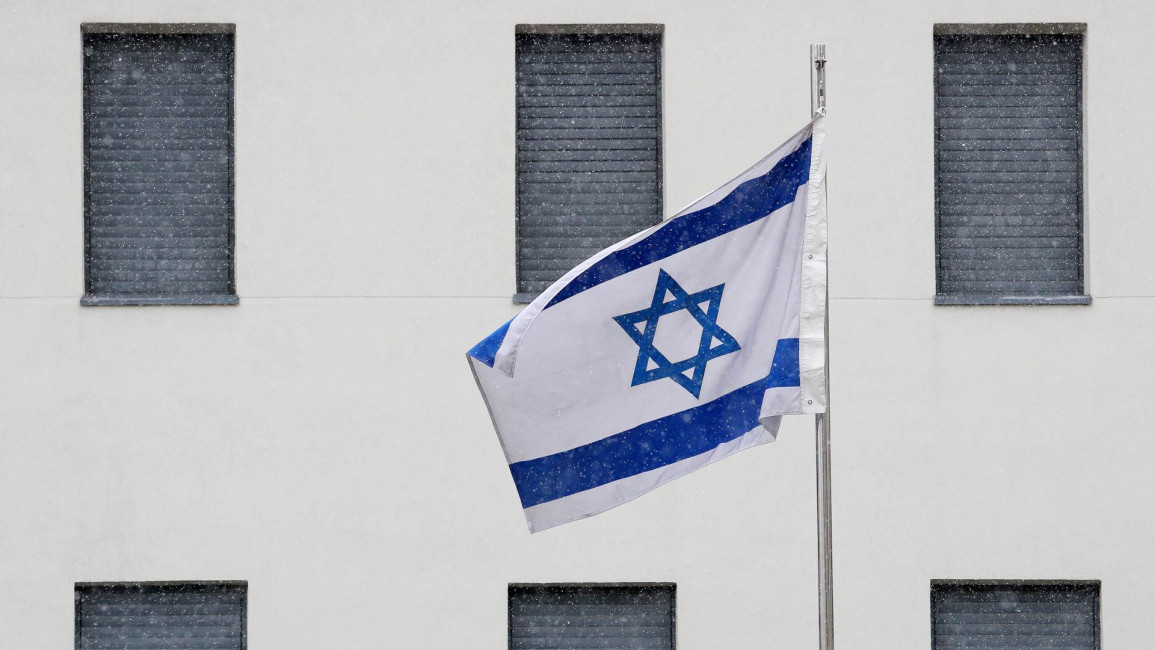Fearing Iranian response, Israel raises alert level in delegations abroad
The killing of Mohsen Fakhrizadeh is widely thought to have been carried out by Israel, the Islamic republic's arch enemy and a fierce opponent of Tehran pursuing nuclear capabilities.
Fakhrizadeh was known as the head of Iran's former nuclear weapons programme.
Previous attacks on nuclear infrastructure and personnel in Iran have also been blamed on Israel.
Israeli diplomatic missions have been placed on high alert, local media reported.
Security officials fear a repeat of the 1992 attack on the Israeli embassy in Argentina after the killing of then-Hezbollah leader Abbas Musawi. Nearly 30 people were killed in the car bomb attack.
Israel has accused Iran of attempting more recent attacks on diplomatic staff. In 2012, bombs were planted in two Israeli diplomatic cars in Georgia and India, wounding an embassy staffer in New Delhi.
Iran President Hassan Rouhani vowed revenge on Saturday over Fakhrizadeh's killing, adding that this would take place "in the proper time".
"The Iranian nation is smarter than falling into the trap of the Zionists. They are thinking to create chaos," Rouhani said.
Twitter Post
|
Friday's attack happened in Absard, a village just east of the capital Tehran that is a retreat for the Iranian elite.
Iranian state television said an old truck with explosives hidden under a load of wood blew up near a sedan carrying Fakhrizadeh.
As Fakhrizadeh's sedan stopped, at least five gunmen emerged and raked the car with rapid fire, the semiofficial Tasnim news agency said.
Fakhrizadeh died at a hospital after doctors and paramedics couldn't revive him. Others wounded included Fakhrizadeh's bodyguards. Photos and video shared online showed a Nissan sedan with bullet holes in the windshield and blood pooled on the road.
The attack comes just days before the 10-year anniversary of the killing of Iranian nuclear scientist Majid Shahriari that Tehran also blamed on Israel. That and other targeted killings happened at the time that the so-called Stuxnet virus, believed to be an Israeli and American creation, destroyed Iranian centrifuges.
Those assaults occurred at the height of Western fears over Iran's nuclear program.
Tehran long has insisted its program is peaceful. However, Fakhrizadeh led Iran’s so-called AMAD program that Israel and the West have alleged was a military operation looking at the feasibility of building a nuclear weapon.
The International Atomic Energy Agency says that "structured program" ended in 2003.
IAEA inspectors monitor Iranian nuclear sites as part of the now-unraveling nuclear deal with world powers, which saw Tehran limit its enrichment of uranium in exchange for the lifting of economic sanctions.
After Trump's 2018 withdrawal from the deal, Iran has abandoned all those limits.
Experts now believe Iran has enough low-enriched uranium to make at least two nuclear weapons if it chose to pursue the bomb.
Meanwhile, an advanced centrifuge assembly plant at Iran's Natanz nuclear facility exploded in July in what Tehran now calls a sabotage attack.
Agencies contributed to this report
Follow us on Facebook, Twitter and Instagram to stay connected



